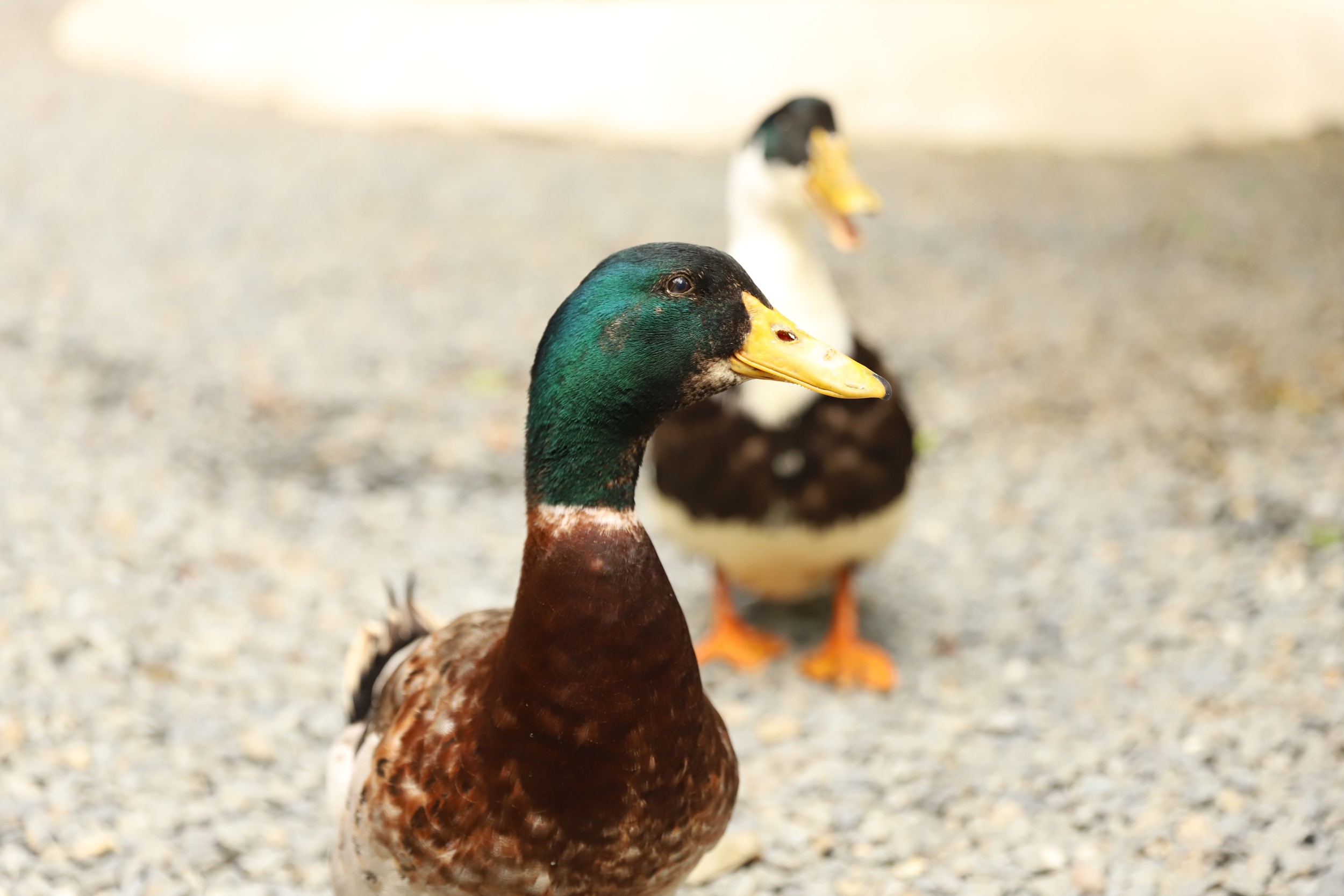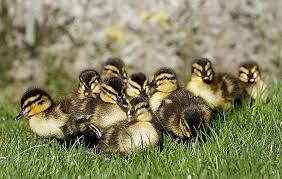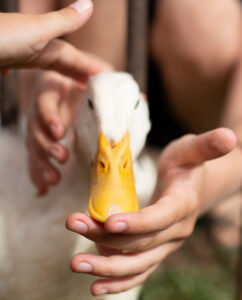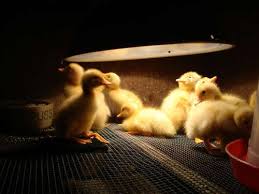Are you thinking about buying a baby duckling? Maybe you’ve considered hatching your own duckling by using an incubator.
Or maybe your baby duckling is already here and you’re just looking for tips on how to care for it.
Regardless, I’m here to help you on this exciting journey of helping your new friend grow into the best duck it can be 🙂
Hi, I’m Jeremy. I’ve successfully raised many newborn ducklings. And I’ve had a blast doing it. I want to pass my methods of joy and success down to you.
Baby ducklings need quite a bit of care. You’ll need to set up a proper living arrangement. Constant heat supplies will be needed. And, of course, your new friend will need plenty of food and water in order to live a healthy lifestyle.
What can you expect from this article? Well… by the end, you should be fully-prepared to raise a newborn duckling from scratch. And you’ll be ready to form a long-lasting, close bond with your new little pal!
The Brooding Area (where your ducks will sleep)
Your baby duckling is going to be spending a lot of time in the brooding area. This is where your duck is going to be living. So you’ll want to make sure that your brooding area is set up in a way that will bring comfort and peace to your new little friend. I’ll be sharing some solid tips that I have learned over the years as a duck caretaker.
- Make sure that your brooding area is clean and dry. It will also need to be well-lit with proper ventilation. Assure that there are no drafts entering the brooding area. This is going to maximize the comfort level of your baby duckling.
- Make sure that the brooding area is enclosed and secure. This will help keep out predator animals, such as foxes and cats. This will help make sure that your baby duckling isn’t turned into a meal for some hungry animals.
- Make sure that the bedding is absorbent. Baby ducklings love playing in their water trays. Water is going to be spilled on the bedding. Hay seems to work well for ducks. But wood shavings are not ideal. Your little pal may try to eat these shavings.
Keeping Your Duckling Warm
Ducks need a constant heat source. And your new little pal is no exception. A newborn duckling will need temperatures around 98 degrees Fahrenheit for the first 10 days. After that, you can lower the temperature by 5 degrees every week until you reach 70 degrees. Are you wondering how you will keep your buddy warm? Don’t worry, I’ve got you covered.
Temperature Settings for Ducklings
| Timeline | Temperature |
|---|---|
| First 10 Days | 98 degrees Fahrenheit |
| Days 11 – 17 | 93 degrees Fahrenheit |
| Days 18 – 24 | 88 degrees Fahrenheit |
| Days 25 – 31 | 83 degrees Fahrenheit |
| Days 32 – 38 | 78 degrees Fahrenheit |
| Days 39 – 45 | 73 degrees Fahrenheit |
Tips for Keeping Ducklings Warm
- Use a heat lamp to provide warmth for your newborn duckling. This lamp should have an infrared bulb. And the lamp should be able to provide 250 watts of power. Be sure to avoid using regular light bulbs, because they won’t provide enough warmth.
- Be sure to monitor the temperature inside of the brooding area. You can do this with a thermometer. Just hold it at the level of your duck’s head. Your temperatures can be adjusted by changing the level of the heating lamp.
- Keep that lamp on 24/7. And make sure that it doesn’t come into contact with your new friend. What happens if the heat lamp touches your baby duckling? Well… at the very least, your little buddy will suffer burns. It could be even worse than that, though.
Food & Water
Your baby duckling can’t grow (or even survive) without food and water. So you’ll want to get this part right in order to promote a healthy lifestyle for your friend. I’ve been doing this for a long time. And I’m ready to share some great tips with you.
- Use duck starter or chicken starter. These types of feed provide all the essential nutrients that your duck will need in order to strive. You should be able to find duck or chicken starter at your local pet supply store. You can find starters online as well.
- Use a shallow tray for the food. This will allow your duckling easy access. Start off with just a couple tablespoons per day. You can gradually increase the amount by 1 tablespoon every few weeks. You can do this until you reach half of a cup of food per day.
- Fruits and vegetables can be fed to your baby duckling. I recommend using fresh food instead of the stuff out of a can. You’ll need to make sure that the fruits and veggies are minced into small pieces. This is because ducklings don’t have teeth. Try to avoid onions, though.
- Always make sure that your baby duckling has constant access to fresh water. Use a shallow pan for easy access. This will also make sure that your new friend won’t drown in it. Make sure that you’re changing the water at least once per day.
Special Care Tips for Beginners
Newborn ducklings are cute and fun companions, as long as you treat them right. I recommend letting your new pal outside on occasion when the sun is out. This will allow plenty of exercise and the ability to explore a little bit. Just make sure that you have some sort of enclosed area outside if you’ll be having your duck out there.
You’ll need to take great care of your new friend. This involves paying close attention to the brooding area arrangement, keeping a steady heat supply around, and making sure that your buddy has constant access to food and water. These are all of the essentials needed in order for your little pal to blossom into that full-grown duck that he/she wants to be.
If you follow these tips that I’ve provided, then you’ll be well on your way to a successful journey of companionship with your baby duckling. Be prepared for extreme amounts of bonding and happiness on your adventure. I hope I’ve been able to help you out as you take on the role of being a caretaker for a great animal. And as always, have fun!



